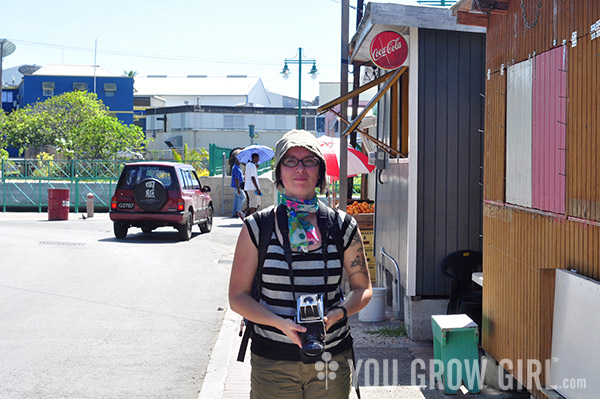
I don’t like being a tourist. I like to see new places, but I’m not especially comfortable in the role of The Tourist. Or perhaps it is that I have been witness to the crass and vulgar behaviour of one too many Tourists on vacation and my discomfort lies in what feels like an unfair association. The Tourist is no longer the self that they are at home because they are On Vacation and feel licensed, entitled, to a certain way of being, a certain privilege. There is a disconnection and dehumanizing that seems to take place in the exchange between The Tourist and the people of wherever in the world they happen to be at the time. Most likely because many of the places The Tourist visits are countries of brown and black people. At its best there is a mutual exploitation at play, but at its worst, it is not hard to tell who has the better end of the deal. [And this is happening more now with climate change as a factor.]
When I go places, I don’t want to disconnect from my humanity or forget the humanity of others. I still just want to be me. Same body in a new location. I don’t want to be lumped in with every other tourist that has come before me or treated relative to a standard that has nothing to do with the reality of my life and how I behave in it. I have a general discomfort with being served and I am allergic to the hard sell. Put those things together and it’s like stepping into my own version of hell.
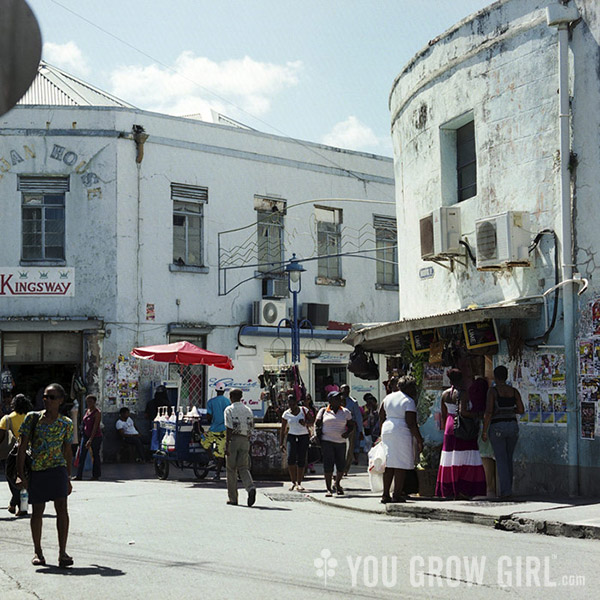
On our third day in Barbados I was ready to explore further and cross off a few important goals from my list. The first was to make it to Bridgetown, the capital city. In my possession is a scan of a 60’s era postcard promoting a clothing boutique located in Bridgetown. The front of the postcard features a split image design. The right side image depicts the inside of the boutique. A young woman with long, dark hair is modelling a colourfully patterned bikini in front of a rack of clothing and beside her is an Indian woman in a glowing, orange sari (I assume she is the owner of the store and its namesake), holding a blue and gold silk dress. In the left side image is the same young woman walking down the street in front of the store wearing a different outfit and carrying a shopping bag as if she has just left the store with her purchases. That young woman is my mother, and my grandmother, who was a seamstress at the time, made some of the clothing for sale in the shop. One of my goals for the day was to try and find the street where that photo was taken and approximate it as best I could with my own camera. I won’t bother showing you the photo that I took. The image itself is mediocre at best. What matters, and the reason why I am telling you this story, was the emotional impact of being there, standing on that street, being in a place that played some small hand in shaping me because it had shaped my mother so long before I was born.
This is how I think about place. We each have our own personal geographies, some of which happen to be places we have never been. Those places shape us in ways knowable and unknowable. This is why I had such a strong desire to travel to Dominica, and also Barbados, although I didn’t know it then. It was to stand in those places and see what unknowable things about how I got to be who I am might become known.
“Born in St Kitts in 1958, Phillips was allowed only a few weeks in the Caribbean before he was transplanted to northern England as an infant. There he was trundled around from one base to another. At school and at Oxford, he felt himself to be the outsider, marked out by race and walled off by multiple cultures, identities, and values. As a writer and as a human being he was faced with the task of bridging these multiple realities in order to understand who he was and where he belonged. “At this stage, if I were to say what the aim of my work has been,” he tells an interviewer in 1986, “I think it’s increasingly an exploration of the meaning of ‘home’.”
Gradually, “home” ceases to be a single location or culture. The multiplicity of the world becomes home. “I don’t want to live in a world in which the idea of a complex cultural and historical, racial, religious identity is something to be ashamed of,” Phillips says. “And I want people to accept the fact that moving across these old lines in a personal way is the way forward … it’s not necessary to have a very concrete sense of home … actually, those of us who don’t have a very concrete sense of home are okay.”
– from The Caribbean Review of Books (about writer, Caryl Phillips)
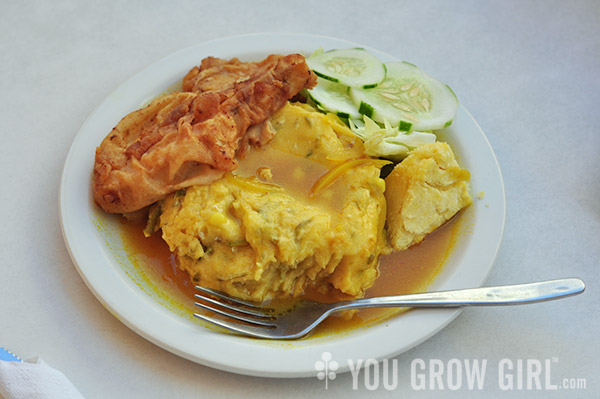
Lunch that day was the best I’d had until that point in the trip. I think it was either chicken or fish and cou cou. Delicious.
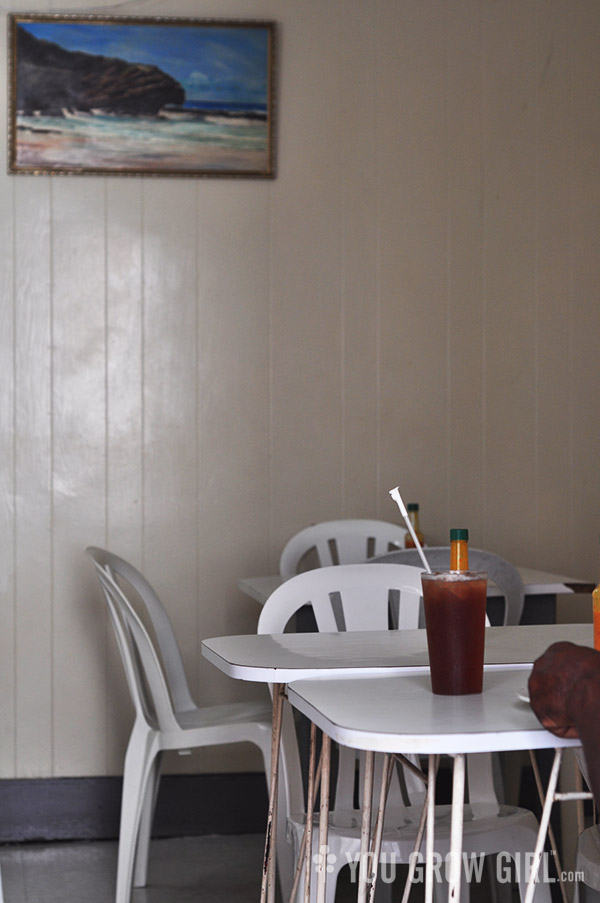
In telling stories about her life before she came to Canada, my mother often referred to Barbados as home. Many stories began, “Back home…” As a child this confused me because I only understood one place as home and weren’t we already there? She was speaking about a place and time vastly different from the home that I knew, a place that existed somewhere across the world but also inside her head. This is how geography is. There is the place itself and the place as we know and feel it. My home is here in Canada, but there is a part of me that belongs to these other places because they were home to my grandmother and my mother, two women who raised me. These women and I are connected, for better or worse, my body and nervous system having been formed from out of theirs. I am connected to their geography, and everything that encompasses, which can include people, culture, religion/belief systems, and land) through the effect it had on them.
On the way to the street we were approached by an array of people, mostly young men, who wanted to sell me things. I had been identified as The Tourist and there is an expectation that comes with that identity. The Tourist wants to buy things and for the person whose livelihood depends on selling things to The Tourist, well, I can’t blame them for the hustle. Despite my introverted tendencies, in a better frame of mind I can handle it fairly well. But at that time and in that place that was emotionally intense and loaded… it was overwhelming. At one point I just collapsed onto the curb, leaned my head over into my lap, and cried.
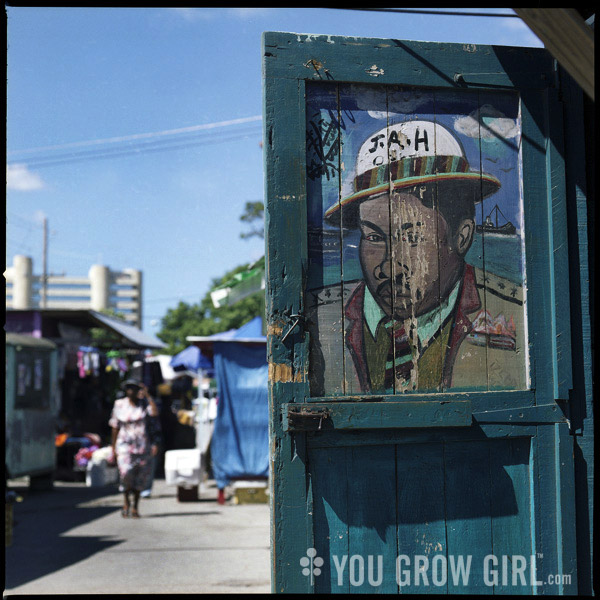
Eventually we made it back to the bus station. There too I was overwhelmed by the crowds, my lack of knowledge about how to navigate the bus system, and uncertainty about what to do next. The place was buzzing with buses coming and going, drivers yelling out the names of destinations unknown to me. When I heard “Bathsheba,” a name that was familiar due to stories told by my mother, we took a chance and hopped on board. It was the exact right choice.
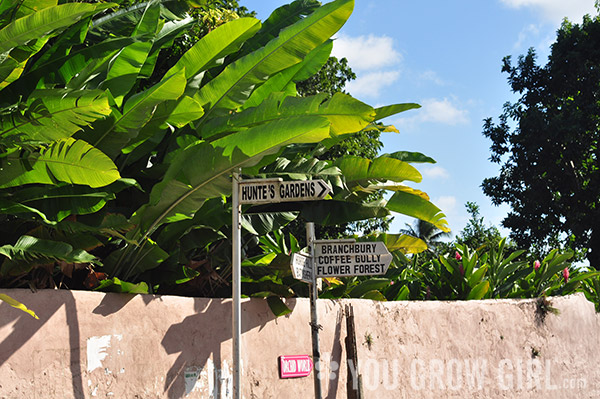
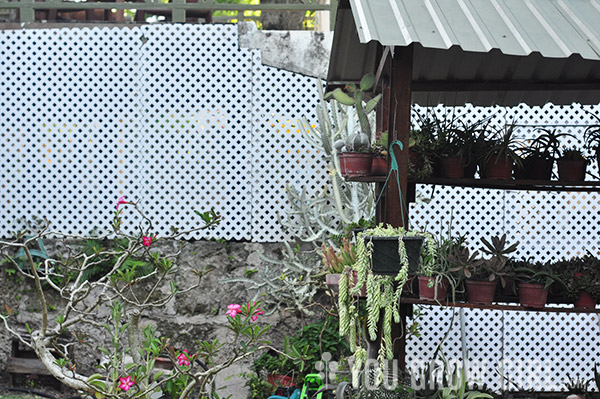
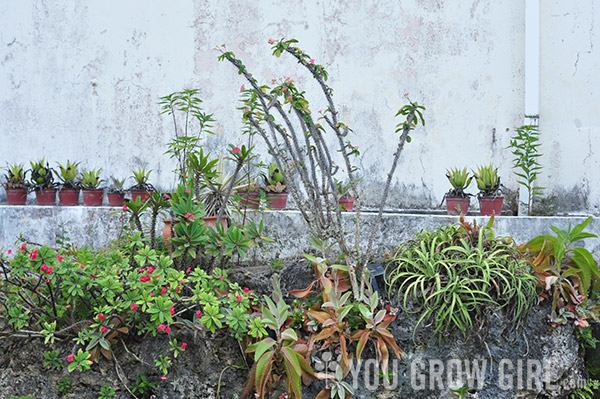
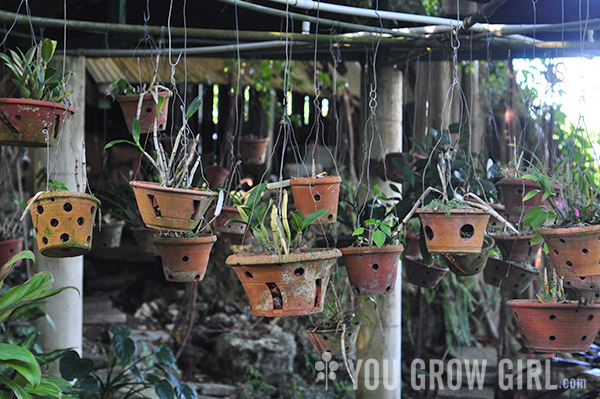
In Bathsheba we visited Andromeda Botanic Gardens. A garden, no matter where it is, always feels like home to me. A garden has the power to restore me back to myself almost as soon as I step into it. Before leaving Bathsheba we saw a green monkey running down the road. I thought it was a squirrel until I remembered where I was and the stories my mother told about the monkeys! And I had got to see one, however fleeting. The bus ride back was amazing… golden light illuminating the cane fields, a young mother tenderly doting on her baby, the bus bopping up and down madly over the country roads while music blasted…
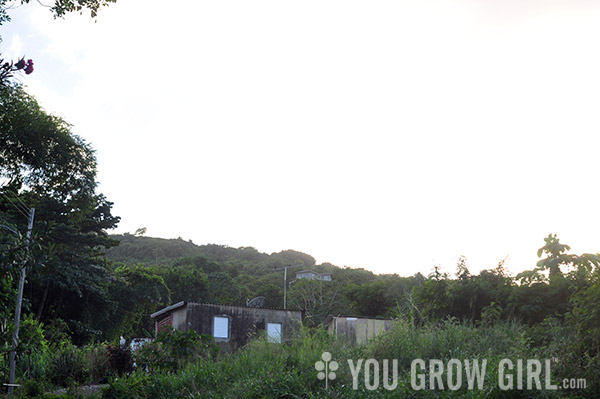
Shortly before the trip, I found myself connecting Barbados to my mother in a literal way: the land and the place as her body. As hurtful, selfish, disconnected, and ruthless as her relationship had been to me. In many ways I was right. In many other ways I was completely and utterly wrong.
I didn’t expect it, but I found a piece of myself in Barbados, a piece that felt like home.
Barbados is one of the most beautiful islands I’ve ever seen and experienced. The beaches are beautiful with soft, white sand.
Hi Gayla!
I’m so glad you are taking time to revisit your vacation adventures and share them with us. It’s great to get such a close up view and your personal reflections. I love the photo of those hole-y hanging pots – never saw them before.
My Caribbean vacation destination was the British Virgin Islands on a cruise boat holding only 100 people, very intimate in contrast to most cruises. We passed through shortly after a hurricane had blown off most rooftops (quickly replaced with blue tarps) and blown down nearly every traffic light. They were laying in heaps near the intersections. The plant material in most of the stops was lovely, though. We rode in a memorable bouncing bus, too, on Boxing Day.